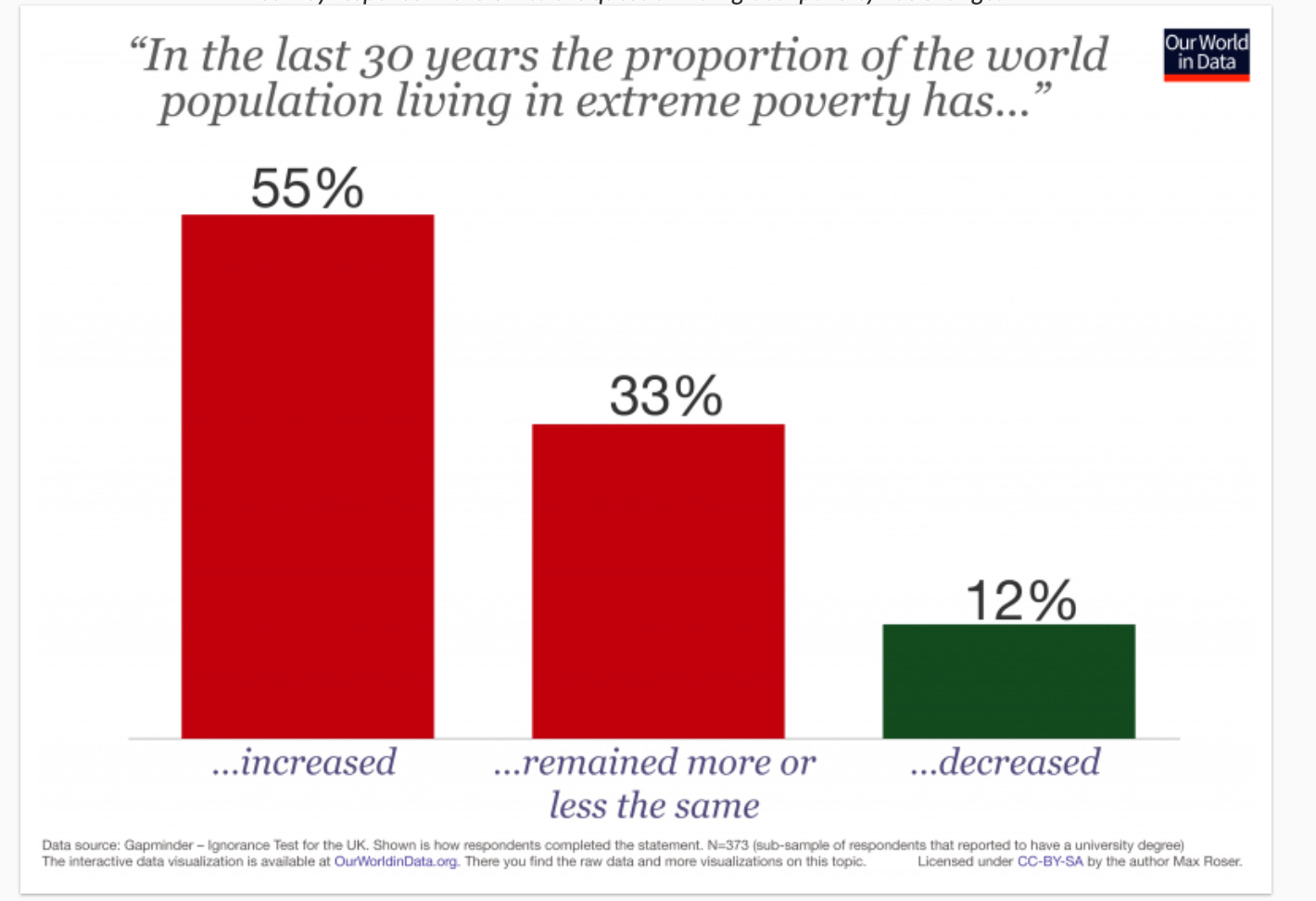Welcome to the fifth edition of my newsletter, The Debatable Land. Thank you for subscribing and onwards and upwards into 2022 and all that…
Not Everything Is Rubbish
No, really.
That is from a 2013 survey of British folk conducted by Gapminder and its broadly replicated the findings of a similar survey done in Sweden. There are few grounds for thinking the results would be very different if the question was asked again today. And yet - on what is not a small or insignificant question! - the level of ignorance on display is of stratospheric heights. Here is the actual answer:



